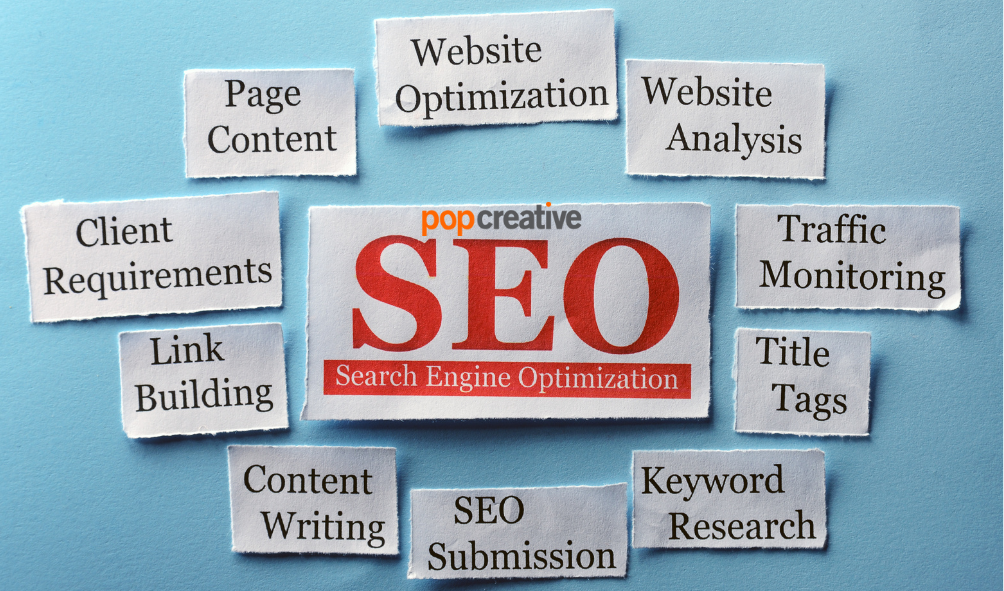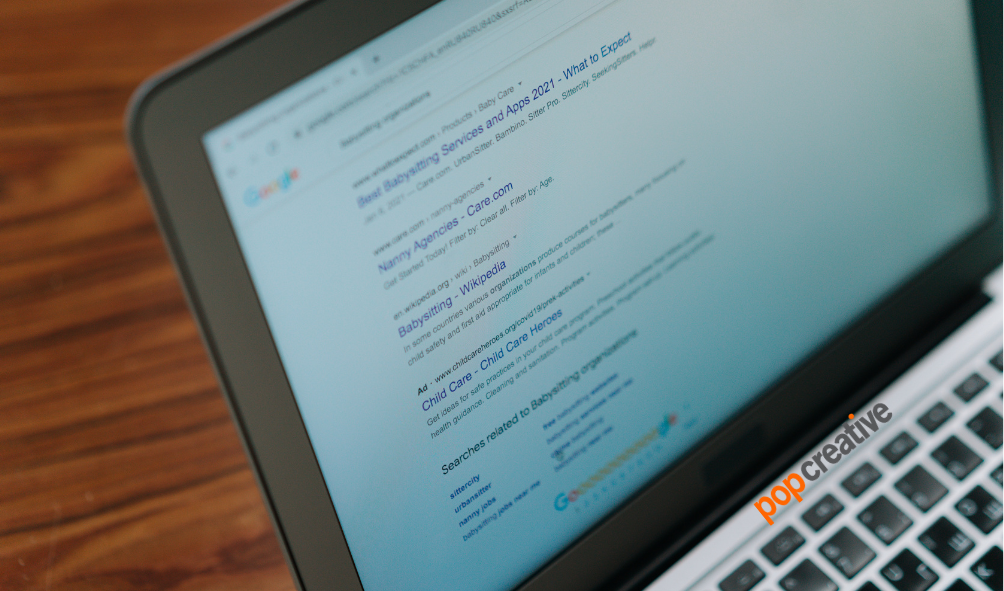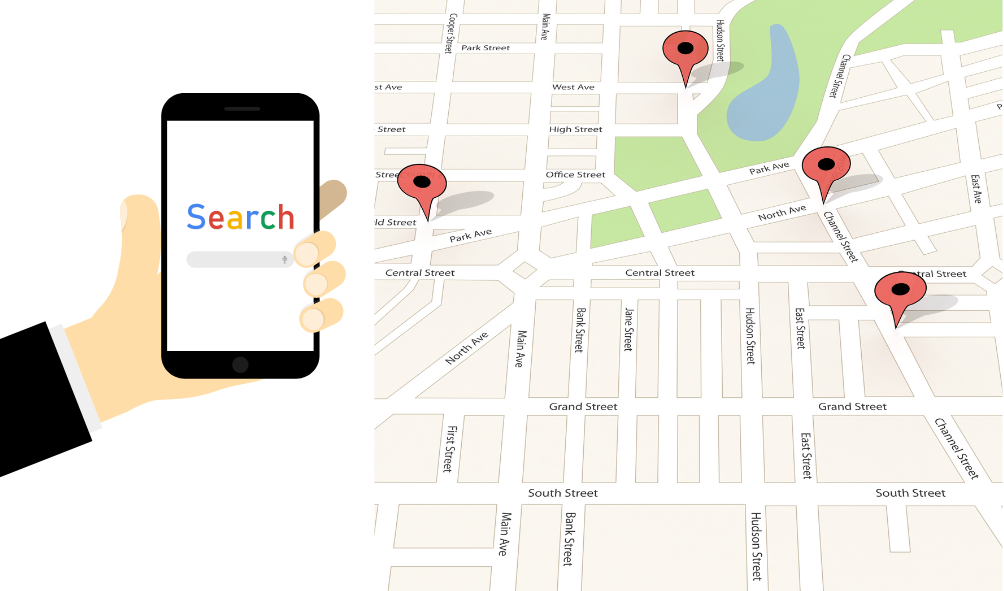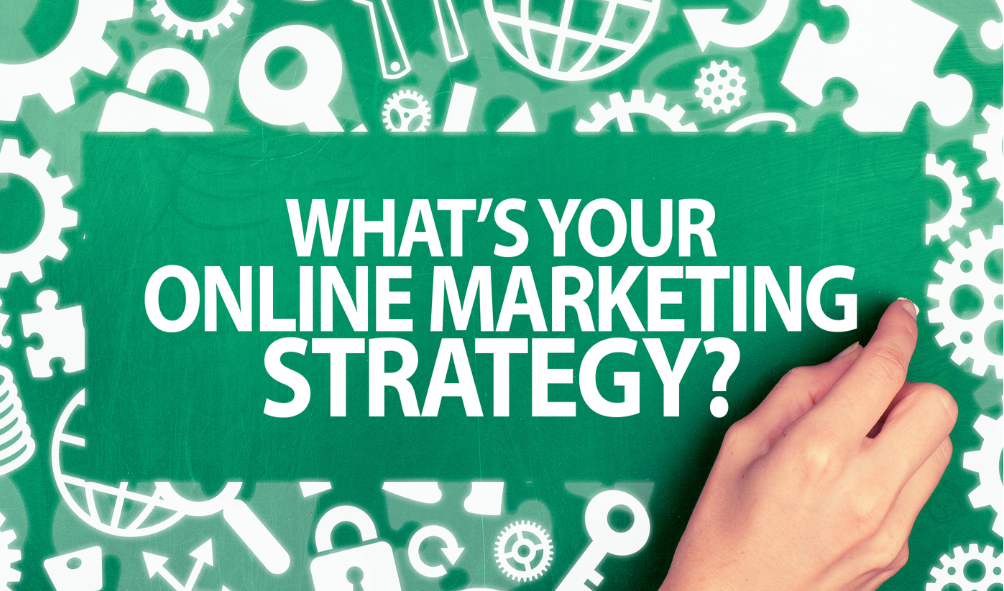In the constantly connected world we currently find ourselves, it makes sense that business owners would find potential customers online. Over the past 30 years, since the advent of the internet, the instance of digital marketing being used as the primary form of advertising has grown exponentially.
But, the digital marketing world is no easy landscape to navigate. There are numerous acronyms to decode and things to decipher. However, once you get the hang of it, online advertising can be a hugely rewarding and satisfying way to market your business. Read on to learn the difference between PPC vs SEO and what CPC means within a PPC campaign.
PPC vs CPC: What’s the Difference?
PPC and CPC are related digital marketing concepts. While PPC stands for Pay Per Click and refers to the type of advertisement being run on a particular platform, usually a search engine, CPC stands for Cost Per Click, and is the amount of money you will pay the search engine every time someone clicks on your advertisement.
PPC adverts are usually run on search engines such as Google, Facebook, and Amazon. Google Paid Search has become synonymous with PPC because it’s the biggest and most popular advertising platform in the world. Essentially PPC is a way to buy visits to your website instead of earning them organically through SEO techniques, which we’ll discuss later.
Whether or not your business’ advert is presented to a potential customer depends on the keywords that they type into the search engine in question. For example, if you have taken out a paid-for advert via Google Paid Search for your painting and repair business in Florida and your advertisement has the keywords “painting and repair” and “Florida” and someone types in the search term “Painting and repair business in Florida”, it will pick up on those keywords.
However, because “painting and repair” and “Florida” are such general terms, there is probably a lot of competition for them, which means you’ll pay more per click. That’s why advertisers and business owners conduct keyword research. The goal is to find out which industry-related search terms people are searching for and try to pick the ones which are relevant to the product or service, but which don’t have as much competition. This allows for a lower CPC in PPC campaigns and helps business owners get more exposure online for less investment.
Your CPC, or the amount that you pay every time someone clicks on your ad should be small enough that the customer’s visit is worth more than the fee. In other words, if you paid $2.50 for the click and the visit converts into a sale worth $200, that’s almost a 1000% profit.
Therefore, advertisers need to bid for keywords that are relevant and in line with their budget. Because Google wants to show its customers the most relevant search results possible, advertisers who select the most relevant keywords to the landing page of the product or service that the advert leads to and create highly organized, well-researched ad campaigns will be rewarded. The rewards are in the form of lower costs per click and higher search engine result page rankings.
PPC vs SEO: What’s the Difference
There are two ways to market your business through search engines like Google: PPC and SEO. Although the end result of gaining visitors to your website is the same, SEO and PPC marketing differ in the tactics that they use to attract customers and where they appear on the search engine results page (SERP). Marketing through SEO, or Search Engine Optimization, entails gaining visitors to your website organically, i.e. without having to pay for it, by using various techniques and strategies to improve your website’s SEO ranking. Various factors determine a website’s SEO ranking or what position it appears on the SERP.
PPC is instant — as soon as you start running your ad you will be able to see it at the top of the page on Google. SEO takes a lot more time and effort before you start seeing results. Generally, it takes about 6-9 months before you start seeing results, which means that if you aren’t persistent, your ranking might start to drop. Even though PPC adverts are instant, your campaign will only run as long as you have specified.
PPC vs SEO: Which Is the Best form of Marketing for A Small Business?
One advantage that PPC has over SEO is that you can target potential customers in specific geographic locations by using location-based keywords and chances are that if you’re a small business owner, you’ll want to target people near you. However, if you want to rank locally using SEO, you will have to make sure that your business name, address, and phone number are the same across all platforms.
As previously mentioned, SEO takes a lot longer to see results whereas PPC is instantaneous. Some SEO tactics include on-page optimization, blogging and backlink building which all require a lot of time and effort to execute. The person implementing these tactics also generally needs to have a good understanding of SEO and on-page ranking metrics so that they are able to determine whether their tactics are actually working. Taking all this into consideration, SEO might not be the best marketing strategy for small businesses who need results fast and can’t afford to wait for SEO to pay off.
That said, the long term investment into SEO should eventually pay off. Once your website consistently ranks high organically for local search terms, you won’t need to pay for every potential customer visiting your site. If your website stays high in organic search results, you might actually attract more traffic to your website with SEO compared to PPC.
So what’s better between PPC vs SEO will depend largely on your business marketing strategy and current needs. A combination is usually best for optimal results.
How to Get Started with Paid Advertising Online
The most popular out of all paid advertising channels is Google Ads. Google is by far the most popular search engine globally, so it makes sense to advertise on a platform where more people will see your ad. Through the Google Ads platform, you can easily measure your ROI and see which ads are performing well, as well as which aren’t. This can help you determine which campaigns you want to continue running.
Within PPC advertising, there are two types of ads: search network and display network. Search network ads are those ads you see at the top of your search engine results page when you type in a search term on Google. They look almost identical to the organic search results except for the fact that they say “ad” next to them. These are the most common types of PPC ads.
Display ads are less conspicuous than network ads — they look a lot more like ads. They consist of banner ads that appear on other websites that people visit and they are used to retarget potential customers. So, if you were browsing shoes on Amazon this morning but didn’t purchase anything or placed an item in your cart but failed to check out, chances are that later that day, you’ll be targeted with a banner ad for shoes. This way, companies can encourage potential customers to converting customers. These banner ads on other sites are called display ads.
Because banner ads are visual, they generally require someone with graphic design knowledge to design them and small businesses rarely have a graphic designer employed but of course this depends on the nature of the business. For this reason, a lot of business owners might prefer to use search network ads rather than display ads.
Creating Ads and Finding the Right Keywords
You will need to physically create PPC ads on Google Ads. Search ads are formatted with two headlines and a description with the option to add extensions which include extra information such as sale or promotion information which will entice potential customers to visit your website.
But before you create a PPC search ad, you will first need to conduct keyword research and in order to do this, you will need to put yourself in the customer’s shoes. This helps to determine what sort of search term they would enter if they were looking for the product or service that your business is selling. You can then enter this search term into the Google Ads keyword planner.
Make sure to narrow down the term as much as possible. If you are a business that sells shoes, don’t just use the keyword “shoes”, it’s too broad and there will be a huge amount of competition for it. You can try including the location of your business, as well as the type of shoes you sell.
Once you have come up with a few options to rank for, you will need to do some competitor research to check what kind of keywords your competitors are ranking for. This can seem daunting and you may want to enlist the help of a professional paid search specialist to help you with this.
Determining which keywords to use is the most important part of creating a search ad because it will dictate which kinds of visitors you attract to your website and whether or not those visitors will convert to customers, so it’s a good idea to do thorough research before spending money on clicks that don’t result in any sales.
To avoid wasting money on ads that don’t convert, it’s always best to hire an digital marketing firm with PPC and keyword research experience.






Recent Comments